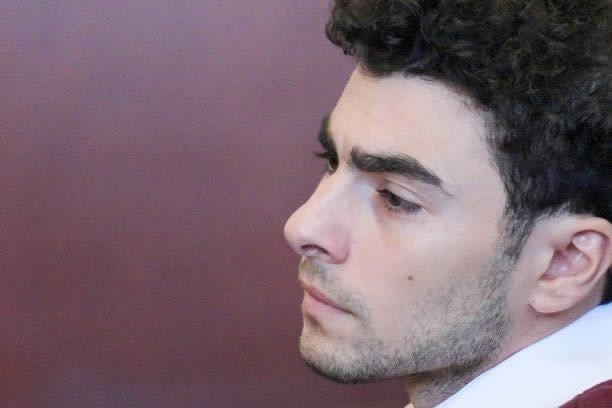Luigi Mangione, 26, stands accused of stalking, terrorism, and using a ghost gun to kill Brian Thompson outside a Manhattan hotel—setting the stage for a multi-jurisdictional legal battle that could end in life imprisonment or the death penalty.
December 4, 2024, was a tragic day for the healthcare industry as Brian Thompson, the CEO of UnitedHealthcare, was found dead outside a Manhattan hotel. What followed was an investigation that would uncover a chilling story of premeditated violence, terror, and a suspect with a dangerous obsession.
Luigi Mangione, a 26-year-old Ivy League graduate, is now facing an avalanche of charges across three jurisdictions that paint a disturbing picture of a man who may have been planning this horrific act for months. Federal, state, and local authorities are working in tandem to hold Mangione accountable for his alleged role in the murder, which has sent shockwaves through the corporate and healthcare worlds.
Federal charges and the potential for the death penalty
In a federal court last week, Mangione was formally indicted on four charges related to the murder, including homicide involving a firearm. If convicted, these charges could result in the death penalty. Federal prosecutors have also filed two stalking charges and one related to the illegal possession of firearms. The most disturbing revelation came from court documents that detail Mangione’s intentions to target a health insurance CEO.
Among the pieces of evidence presented is a notebook found in Mangione’s possession, containing disturbing entries. One dated October reads: “Eliminate insurance CEOs.” Another, from August, ominously declared insurance as “the target,” describing it as a system that “fulfills every requirement” for a victim. These writings, prosecutors say, point to a man consumed by hatred for the healthcare system.
Mangione’s legal team did not enter a plea during the recent federal court hearing. The Manhattan US attorney’s office now has until January to secure a grand jury indictment.
New York State charges: Murder for terrorist purposes
The state of New York has levied 11 charges against Mangione, including murder to advance terrorism and various firearms offenses. Prosecutors argue that Mangione’s intent was clear: to instill fear and manipulate government policy by targeting an influential figure in the health insurance industry.
The state’s case presents a chilling narrative, claiming Mangione’s murder of Thompson was meant to send a message, not just to one individual but to the entire sector. Additionally, Mangione is accused of using fraudulent identification, a New Jersey ID, to register at a Manhattan hostel before the attack.
In state court on Monday, Mangione entered a not guilty plea. While the legal process unfolds, prosecutors are focused on bringing this case to trial in New York first, setting the stage for an emotionally charged legal showdown.
apture on December 9 in Altoona, Pennsylvania, was a critical turning point in the investigation. A McDonald’s customer recognized him from shared security images, and law enforcement quickly apprehended him. Authorities discovered not only the weapon allegedly used in the shooting but also notes critical of the health insurance sector and a forged ID.
Pennsylvania prosecutors filed five charges against Mangione, including firearm possession and forgery. Though these charges are secondary to the murder investigation, they are expected to be reassessed after the New York and federal cases are resolved.
A legal team’s struggle against multiple charges
Mangione’s defense team has condemned the multi-jurisdictional approach to his case, arguing that it creates unnecessary complexity and sensationalizes their client’s situation. They claim the widespread publicity has transformed Mangione into a “spectacle,” overshadowing the legal proceedings.
Currently held in federal custody at a prison in Brooklyn, Mangione’s future remains uncertain. As prosecutors prepare for what could be a protracted legal battle, the public is left grappling with the motives and methods behind a senseless act of violence.
The coming months will reveal whether Luigi Mangione’s actions are viewed as a deeply personal vendetta or part of a broader agenda targeting the healthcare system. One thing is clear: his case will serve as a stark reminder of the dangers posed by extremism, wherever it may take root.















